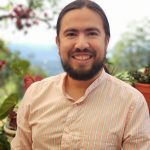Event description
This hybrid event will be hosted in Cartagena, Colombia, and will be the opening session of the civil society days of the first Latin American and Caribbean summit on ‘inclusive, sustainable, and equitable global taxation’. This major event, jointly led by Colombia, Chile and Brazil, represents a significant step towards a common position on tax cooperation at the regional level, and to inform participants’ engagement in the UN intergovernmental discussions on a new international framework for tax.
Leading international and regional speakers will reflect on progress towards a UN tax convention, and on the aspirations for the Latin American and Caribbean summit. Confirmed speakers include the Colombian Deputy minister of finance, María Fernanda Valdés, H.E. Irene Ovonji-Odida from the High Level Panel on Illicit Financial Flows out of Africa (and chair of Tax Justice Network, and an ICRICT commissioner), which provides the first example of a regional process to define common positions in these areas, and which underpins the African leadership of the current UN process towards a new framework.
The civil society days of the summit are organised jointly by Centro Interdisciplinario de Estudio Sobre el Desarrollo (CIEDUR), Friedrich Ebert Stiftung, Foro Social Panamazónico, the Global Initiative for Economic, Social and Cultural Rights (GI-ESCR), the Independent Commission for Reform of International Corporate Taxation (ICRICT), the Human Rights Principles in Fiscal Policy Initiative, Latindadd, Oxfam, Public Services International, Red de Trabajo Fiscal, Red de Justicia Fiscal de América Latina y el Caribe, and Tax Justice Network.
Speakers

María Fernanda Valdés is Colombian deputy Minister of Finance. She is an economist from Universidad Icesi in Cali, and she holds a Master’s degree in International Political Economy and Development from the Institute of Social Studies of the Erasmus University of Rotterdam, in the Netherlands and a PhD in Economics from the Freie Universität Berlin in Germany. She has served as Project Coordinator at the Friedrich-Ebert-Stiftung in Colombia and Deputy Minister of Business Development at the Ministry of Industry, Trade and Tourism. She is also a professor at the Universidad de los Andes, has been a researcher at the Freie Universität Berlin and she is the author of the book “Reducing Inequality in Latin America: The Role of Tax Policy”, published in 2016.

Irene Ovonji-Odida is a lawyer and women’s rights activist. She was a Member of the High Level Panel on Illicit Financial Flows from Africa (Mbeki High Level Panel) and UN FACTI Panel. She is a member of the Independent Commission for Reform of International Corporate Tax (ICRICT), South Center Tax Initiative and the Pan African Lawyers Union task force on Illicit Financial Flows. She previously served in the East African Legislative Assembly, and was International Board Chair for ActionAid International and Chief Executive Officer of the Uganda Association of Women Lawyers.

Adrian Falco
Executive Secretary, Red de Justicia Fiscal de America Latina y El Caribe; Coordinator, Fundación SES
AdrianFalco1Adrian Falco has worked for almost 20 years in civil society organisations, first devoting his time to the study of economic processes and then to research on south-south cooperation and financing for development. Over time he built relations with regional networks that work on the debt problems of the poorest countries of Latin America and the Caribbean and also on the inequality and poverty associated with this issue. More recently he has dedicated himself to the investigation of the transparency mechanisms that are so necessary in tax systems. Regressivity, progressivity, opacity, offshore financial services and the analysis of illicit financial flows occupy a large part of his daily reading and research. He currently coordinates the “Regional integration and financing for development” area of Fundación-SES. He is also Executive Secretary of Red de Justicia Fiscal de América Latina y el Caribe (RJFALC) and president of the Latin American network for economic and social justice (Latindadd). His expertise and educaton links sociology and the study of the impact of economic policies on society. He has also worked on the issue of beneficial ownership and its impact on financing for development through research at www.conferenciabf.org

Susana Ruiz Rodriguez is Global lead on Tax Justice for Oxfam International, a confederation working in more than 90 countries, with programs in Africa, the Middle East, Latin America, across Asia and in parts of Eastern Europe. She is coordinating Oxfam work in different regions and at global level on tax justice. She is also author and co-author of several Oxfam papers on inequality, tax and corporate tax behavior. With a background in international business and international relationships (in France and Spain), she previously worked in China for 7 years before joining Oxfam in Spain to lead work in financing for development. Susana also led Oxfam’s tax and inequality campaign in Latin America from 2013 to 2015.

Sergio Chaparro-Hernandez
International Policy and Advocacy Lead, Tax Justice Network
SergioChaparro8Sergio is International Policy and Advocacy Lead of the Tax Justice Network. He is an interdisciplinary human rights activist and researcher, and an Atlantic Fellow for Social and Economic Equity since 2021. He has a passionate commitment to forging alliances across movements and geographies to advance economic justice at a global level. Before joining the Tax Justice Network, Sergio worked at the Center for Economic and Social Rights (CESR), where he contributed to build and strengthen the Initiative for Human Rights in Fiscal Policy, a cross-movement coalition that aims to transform the way decisions on public resources are taken. In Colombia, his home country, Sergio worked at the think-do tank Dejusticia, the National Congress, and the Political Council of Bogota. He has also worked as a consultant for several organizations, multilateral agencies, and public institutions, in areas relating to drug policies, decent work, land reform and transitional justice. Sergio holds a MSc in Inequalities and Social Science from the London School of Economics, and he studied economics, philosophy and holds a MA in Law from the National University of Colombia.


